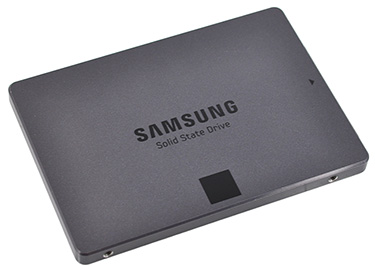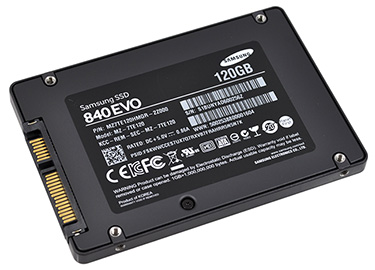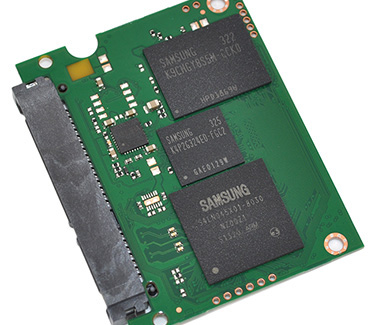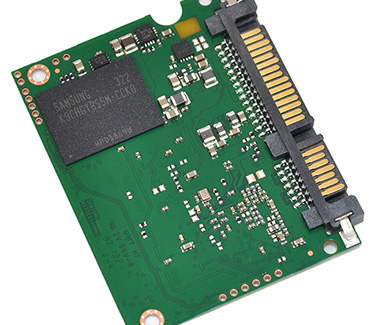Introduction
And here we were, staring multiple SandForce drives in the face, thinking solid-state innovation had ground to a halt. How wrong we were. Boffins at some of the biggest names in the industry have proven that there's plenty of room for improvement, with Intel introducing a new level of consistency across the SATA 6Gbps interface and Crucial showing us that high-capacity SSDs needn't cost the earth.
Up next? Samsung, who's here to tell us that affordable, low-capacity drives don't have to offer second-rate performance when compared to larger drives in the same range. It's a familiar problem, and one what does need tackling. Take the recently launched Crucial M500 as an example - great drive, but the low-cost 120GB model takes a 68 per cent performance hit in terms of sequential write speed when compared to the range-topping 960GB drive.
It's that massive gap that Samsung is attempting to narrow with the new 840 EVO. Designed as a successor to the popular 840 Series, the EVO drive slots in below the top-of-the-line 840 PRO and aims to offer an affordable upgrade path to those looking to take their first steps into solid-state territory. At launch, the EVO Series drive will be available in a choice of 120GB, 250GB, 500GB, 750GB and 1TB capacities, with prices ranging from £87 to £510.
Samsung SSD 840 EVO Series |
||||||
|---|---|---|---|---|---|---|
| Model | 120GB |
250GB |
500GB |
750GB |
1TB |
|
| Controller | Samsung 3-core MEX Controller |
|||||
| NAND | 19nm Samsung Toggle DDR 2.0 NAND Flash Memory (400Mbps) |
|||||
| Onboard DDR2 Cache | 256MB |
512MB |
512MB |
1GB |
1GB |
|
| Interface | SATA 6Gb/s, compatible with SATA 3Gb/s and 1.5Gb/s |
|||||
| Sequential Read Speed | up to 540 MB/s |
up to 540 MB/s |
up to 540 MB/s |
up to 540 MB/s |
up to 540 MB/s |
|
| Sequential Write Speed | up to 410 MB/s |
up to 520 MB/s |
up to 520 MB/s |
up to 520 MB/s |
up to 520 MB/s |
|
| Random IOPs (4KB Reads, QD32) | up to 94,000 IOPs |
up to 97,000 IOPs |
up to 98,000 IOPs |
up to 98,000 IOPs |
up to 98,000 IOPs |
|
| Random IOPs (4KB Writes, QD32) | up to 35,000 IOPs |
up to 66,000 IOPs |
up to 90,000 IOPs |
up to 90,000 IOPs |
up to 90,000 IOPs |
|
| Dimensions (LxWxH) | 100 x 69.85 x 6.8 (mm) |
|||||
| Active Power Consumption | 0.1W Typical |
|||||
| Idle Power Consumption | 0.045W Typical |
|||||
| Life Expectancy | 1.5 million hours Mean Time Between Failures (MTBF) |
|||||
| Endurance | 72TB total bytes written (TBW), equal to 40GB per day for 5 years |
|||||
| Warranty | 3 Years |
|||||
| Retail Price | Basic | £86.99 |
£148.99 |
£289.99 |
£415.99 |
£509.99 |
| w/ Laptop Kit | N/A |
£156.99 |
£297.99 |
N/A |
N/A |
|
| w/ Desktop Kit | £97.99 |
£160.99 |
N/A |
N/A |
N/A |
|
The read and write speeds of the spacious 1TB drive are rated at 540MB/s and 520MB/s, respectively, but what's interesting is that the cheap-and-cheerful 120GB model isn't far behind - it claims to offer 540MB/s reads and 410MB/s writes, which is impressive for a low-capacity drive.
So how has Samsung managed to loosen the previously tight link between performance and capacity? As we know, today's SSDs utilise multi-channel controllers and are able to offer optimal performance when numerous NAND memory chips are interfacing with the processor in parallel.
Taking a look inside the 120GB EVO SSD suggests that the problem should, if anything, be exaggerated. Samsung has just a pair of 19nm NAND memory chips (one either side of the mini-PCB) hooked up to a triple-core controller and a modest 256MB onboard DDR2 cache.
Creating all the components in-house is an obvious advantage - they should work in harmony when set to task by Samsung's proprietary firmware - but two NAND chips, a multi-channel controller and a small DDR2 cache is hardly a recipe for blazing speed. There has to be something else afoot, and there is; both in terms of hardware and software.
First and foremost, Samsung has increased the speed of the controller. The new chip, dubbed MEX, is based on the same triple-core ARM Cortex R4 architecture, but is now clocked at 400MHz; a full 100MHz faster than the previous MDX. A bump in core frequency is typically the way to increase performance, but the 840 EVO's real party tricks are two new technologies dubbed TurboWrite and RAPID (Real-time Accelerated Processing of I/O Data) Mode.













